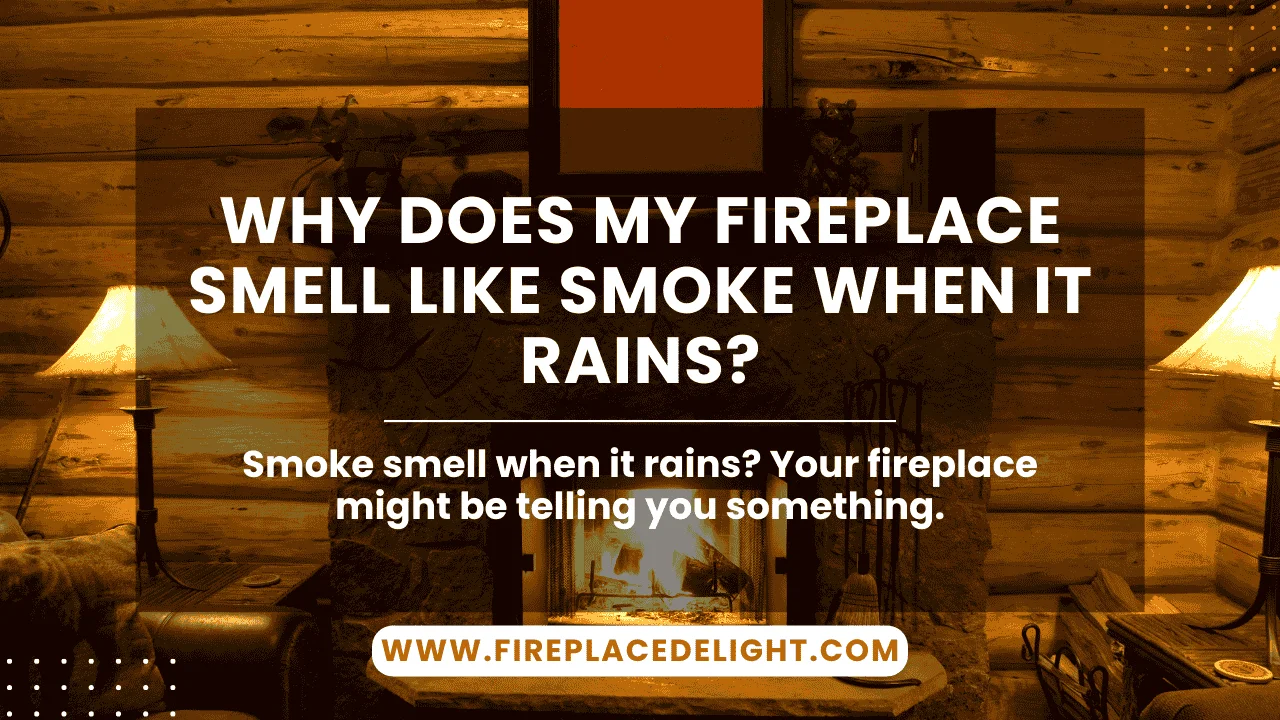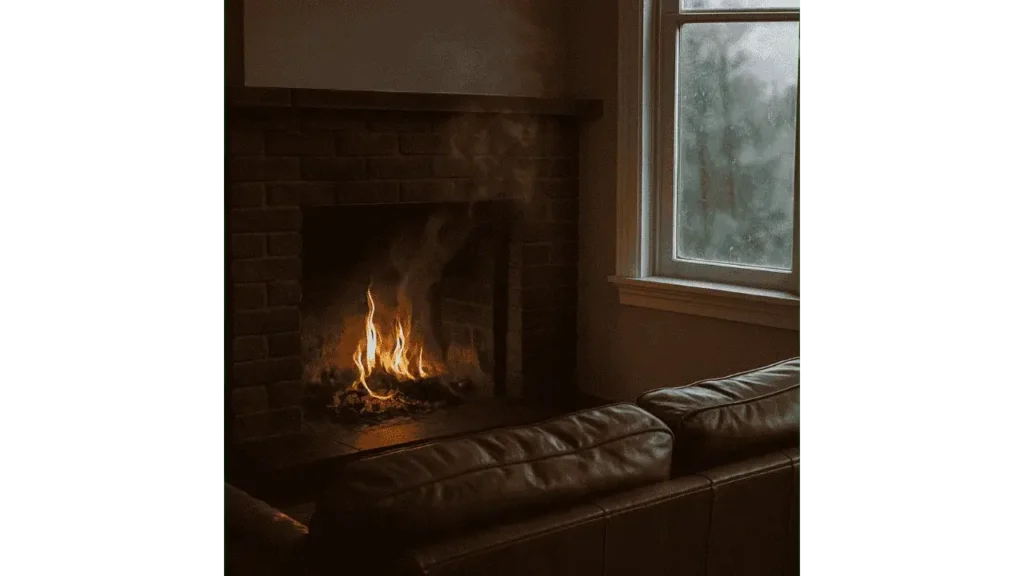The smell of smoke from your fireplace on a rainy day is more than just a nuisance. It’s often a sign that something isn’t functioning properly. Many homeowners experience this issue and wonder why rain seems to bring out the worst odors from their chimney. The answer lies in airflow, moisture buildup, and chimney structure. Whether it’s downdrafts forcing smoke back inside, water mixing with creosote, or an issue with ventilation, understanding the root cause can help you fix the problem. Instead of dreading rainy days, taking the right preventative steps will ensure your fireplace remains a cozy, smoke-free part of your home all year long.
Common Reasons Your Fireplace Smells Like Smoke When It Rains
Negative Air Pressure in the Home
One of the most common reasons your fireplace smells like smoke when it rains is negative air pressure inside your home. Modern homes are built to be more energy-efficient, which means they are tightly sealed to prevent drafts. While this helps conserve energy, it can disrupt the natural airflow of your chimney. When it rains, the outside pressure changes, and if your home is too airtight, the chimney may struggle to expel smoke properly, leading to backdrafts. A simple way to address this issue is to slightly open a window when using the fireplace, allowing better airflow and reducing negative pressure.
Moisture and Creosote Buildup
Rain introduces moisture into the chimney, which can mix with creosote buildup, the black, tar-like residue left behind from burning wood. When moisture and creosote combine, they create a strong, smoky, and unpleasant odor. Additionally, damp chimney liners and bricks absorb water, further intensifying the smell. Over time, this moisture can cause damage to the chimney structure, making the issue worse. Regular chimney sweeping and applying a waterproof sealant can help prevent creosote buildup and moisture retention, keeping your fireplace smelling fresh.
Chimney Draft Problems
If your chimney doesn’t have proper airflow, rain can worsen existing draft problems. Chimney downdrafts occur when outside air pushes smoke and odors back down into your home instead of allowing them to escape. A poorly designed or too-short chimney may struggle to create the necessary upward draft. Installing a chimney cap or draft guard can help prevent downdrafts and improve ventilation, ensuring smoke exits properly even during rainy weather.
Damaged or Missing Chimney Cap
A chimney cap is essential for preventing rain from entering your chimney. Without it, rainwater can pour directly into the flue, leading to excessive moisture, creosote buildup, and an increased smoky smell. A missing or damaged chimney cap also allows debris and small animals to enter, further blocking airflow and causing unpleasant odors. Installing a high-quality chimney cap will not only keep rainwater out but also protect against wind-related draft issues and external blockages.
Blocked or Clogged Chimney Flue
If your chimney flue is partially or completely blocked, it can cause airflow restrictions that worsen during rainy weather. Leaves, animal nests, and soot buildup can accumulate in the chimney, preventing proper ventilation. When rain falls, the damp debris releases odors and makes it harder for smoke to escape, resulting in an overpowering smoky smell inside your home. Regular chimney inspections and professional cleanings ensure that the flue remains clear and functional.
How to Prevent Smoke Smells from Your Fireplace During Rain?
Keeping your fireplace from smelling like smoke during rainy weather requires addressing ventilation and moisture issues. Ensuring proper airflow inside your home can help prevent negative pressure from pulling smoke back into the room. Installing or replacing a chimney cap prevents rain from entering the flue and contributing to creosote buildup. Routine chimney cleanings are essential for removing soot and debris that can trap moisture and cause odors. Applying a waterproof sealant to the chimney structure helps minimize water absorption, while inspecting and repairing any cracks or gaps in the chimney lining ensures a secure and efficient system. Professional chimney inspections can assess overall airflow and identify hidden issues before they become major problems.
Learn More: How to Vent a Fireplace?
Final Takeaways
A smoky fireplace smell during rainy weather is more than just unpleasant; it’s often a sign of underlying chimney issues like poor ventilation, creosote buildup, or moisture problems. Tackling these concerns with simple fixes such as installing a chimney cap, improving home airflow, and keeping the flue clean can make a big difference. Regular maintenance and seasonal inspections go a long way in preventing these odors and protecting your fireplace system. With the right care, you can enjoy a clean-burning, fresh-smelling fireplace, rain or shine.
- 27 Farmhouse Fireplace Ideas That Bring Warmth & Charm - August 18, 2025
- 25 Fireplace Lighting Ideas to Illuminate Your Hearth - August 7, 2025
- How to Replace an Electric Fireplace Switch? - August 5, 2025



